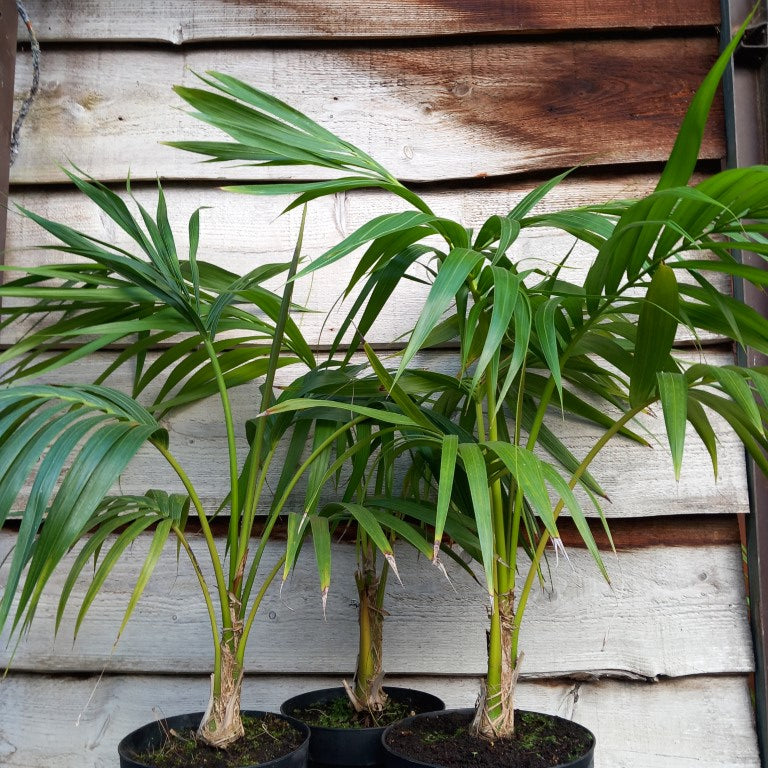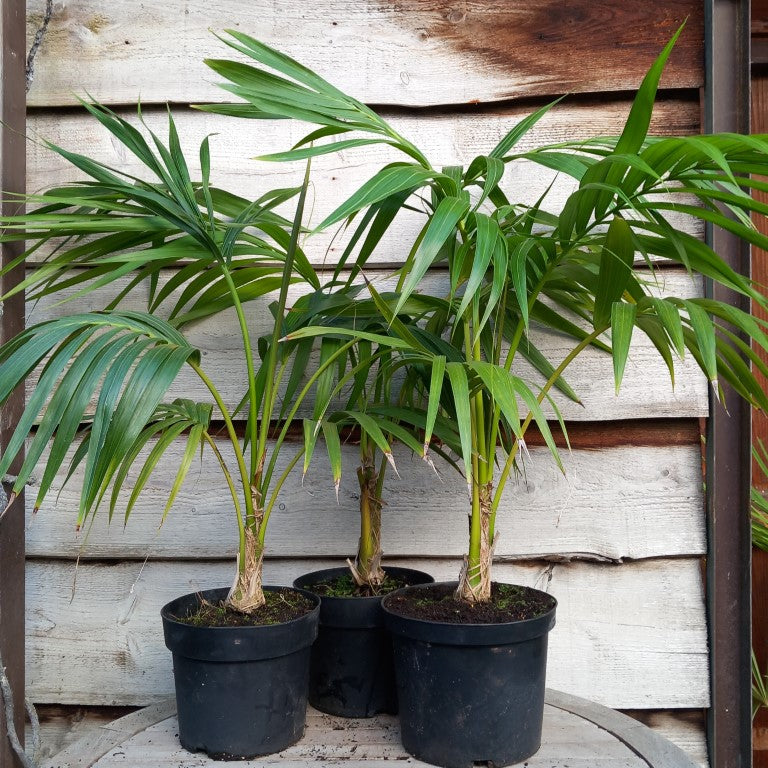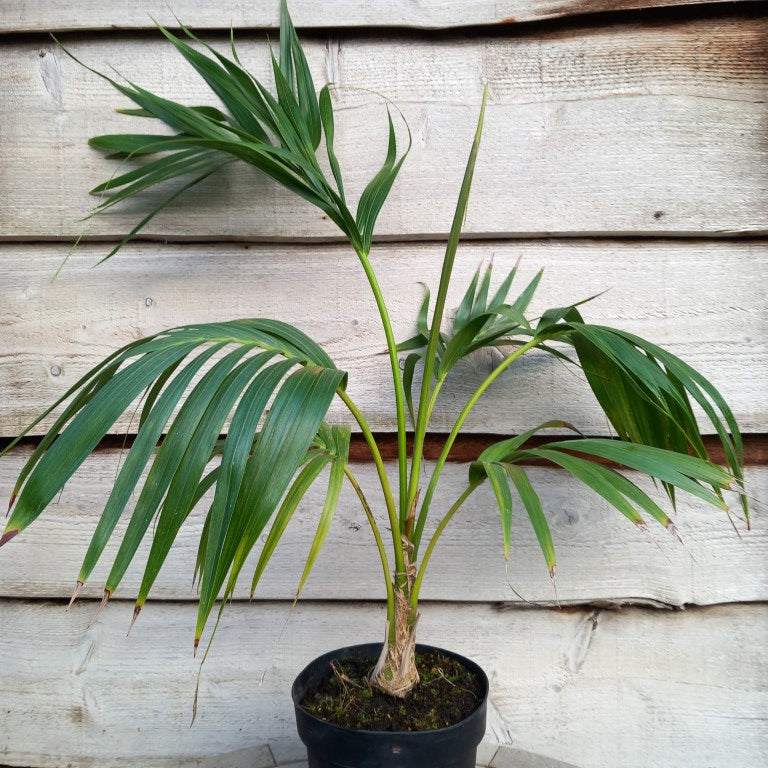1
/
de
3
Kentia / Howea forsteriana, total 50-60 cm
Kentia / Howea forsteriana, total 50-60 cm
Kentia / Howea forsteriana, total 50-60 cm
Howea forsteriana (Kentia palm or thatch palm) is a species of flowering plant in the palm family Arecaeae, endemic to Lord Howe Island in Australia.
It is a relatively slow-growing palm, eventually growing up to 10 m tall by 6 m wide. Its fronds can reach 3 m long.
The palm is an elegant plant, and is popular for growing indoors, requiring little light.
As potted plants Kentias are fairly tolerant of neglect: they can withstand low-light conditions, low humidity, infrequent watering and cool temperatures.
However, it is advisable to give Kentias bright, indirect light to encourage growth and a more robust appearance; Kentias placed in dark corners with little natural light tend to look leggy and grow very slowly.
In the northern hemisphere, a northern or northeastern window is best, as Kentias cannot tolerate direct sun and will sunburn if placed in such an exposure.
The roots are very sensitive to disturbance, so gardeners should only repot Kentias after they have become extremely root bound in their existing pot, and even then should take special care.
They appreciate regular water but should be allowed to dry out between waterings.
Overwatering, or allowing the roots to sit in water, can induce root rot and kill the palm.
An indoor houseplant fertilizer should be applied regularly in the spring and summer to encourage growth.
Howea forsteriana
Howea forsteriana (Kentia palm or thatch palm) is a species of flowering plant in the palm family Arecaeae, endemic to Lord Howe Island in Australia.
It is a relatively slow-growing palm, eventually growing up to 10 m tall by 6 m wide. Its fronds can reach 3 m long.
The palm is an elegant plant, and is popular for growing indoors, requiring little light.
As potted plants Kentias are fairly tolerant of neglect: they can withstand low-light conditions, low humidity, infrequent watering and cool temperatures.
However, it is advisable to give Kentias bright, indirect light to encourage growth and a more robust appearance; Kentias placed in dark corners with little natural light tend to look leggy and grow very slowly.
In the northern hemisphere, a northern or northeastern window is best, as Kentias cannot tolerate direct sun and will sunburn if placed in such an exposure.
The roots are very sensitive to disturbance, so gardeners should only repot Kentias after they have become extremely root bound in their existing pot, and even then should take special care.
They appreciate regular water but should be allowed to dry out between waterings.
Overwatering, or allowing the roots to sit in water, can induce root rot and kill the palm.
An indoor houseplant fertilizer should be applied regularly in the spring and summer to encourage growth.
You buy the product you see: oui
You buy the product you see: oui
Min. temperature:
Min. temperature:
Delivery: package (or pick up)
Delivery: package (or pick up)
Prix habituel
€30,00 EUR
Prix habituel
Prix promotionnel
€30,00 EUR
Prix unitaire
/
par
Taxes incluses.
Frais d'expédition calculés à l'étape de paiement.
Impossible de charger la disponibilité du service de retrait
Share






